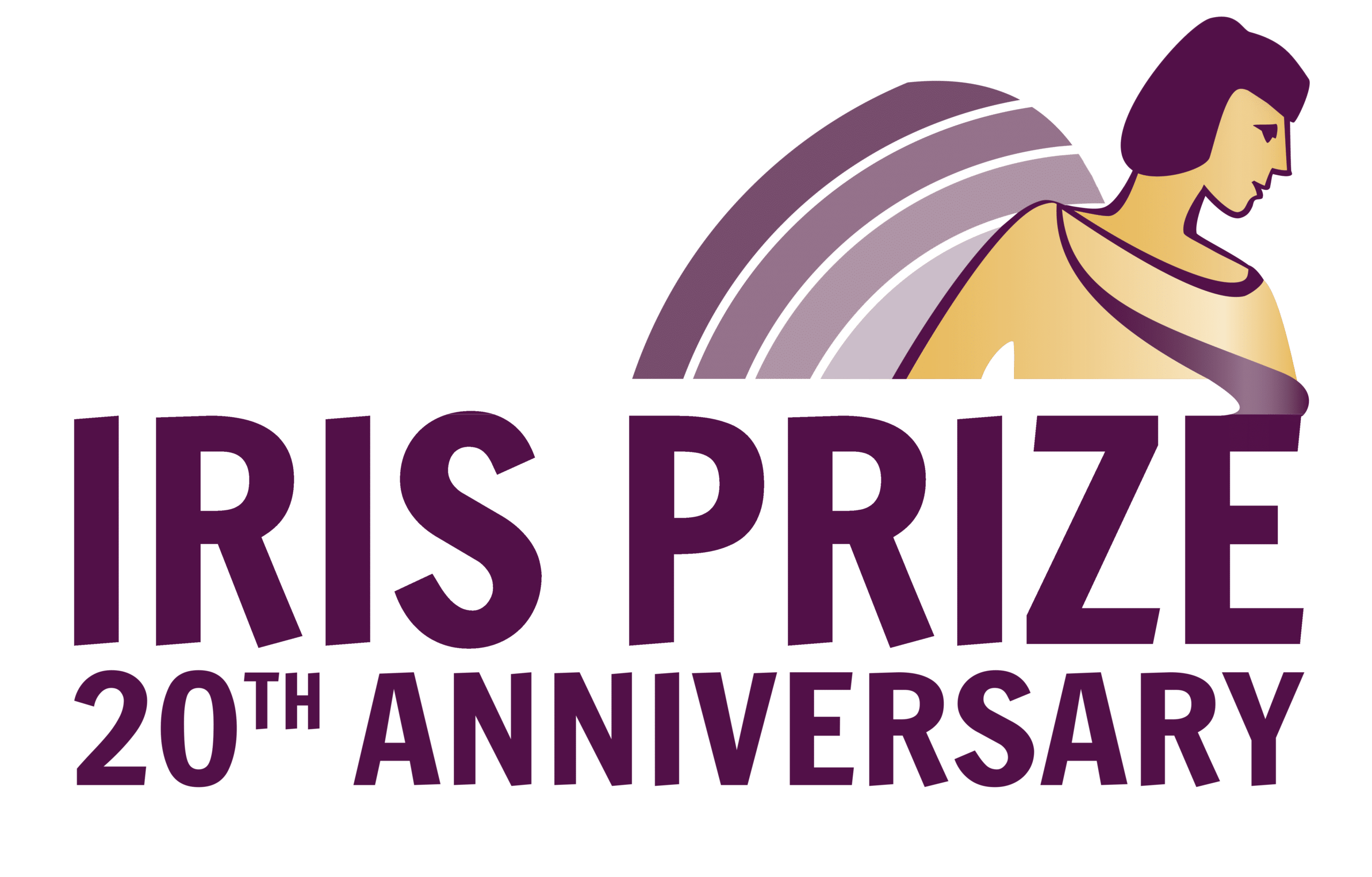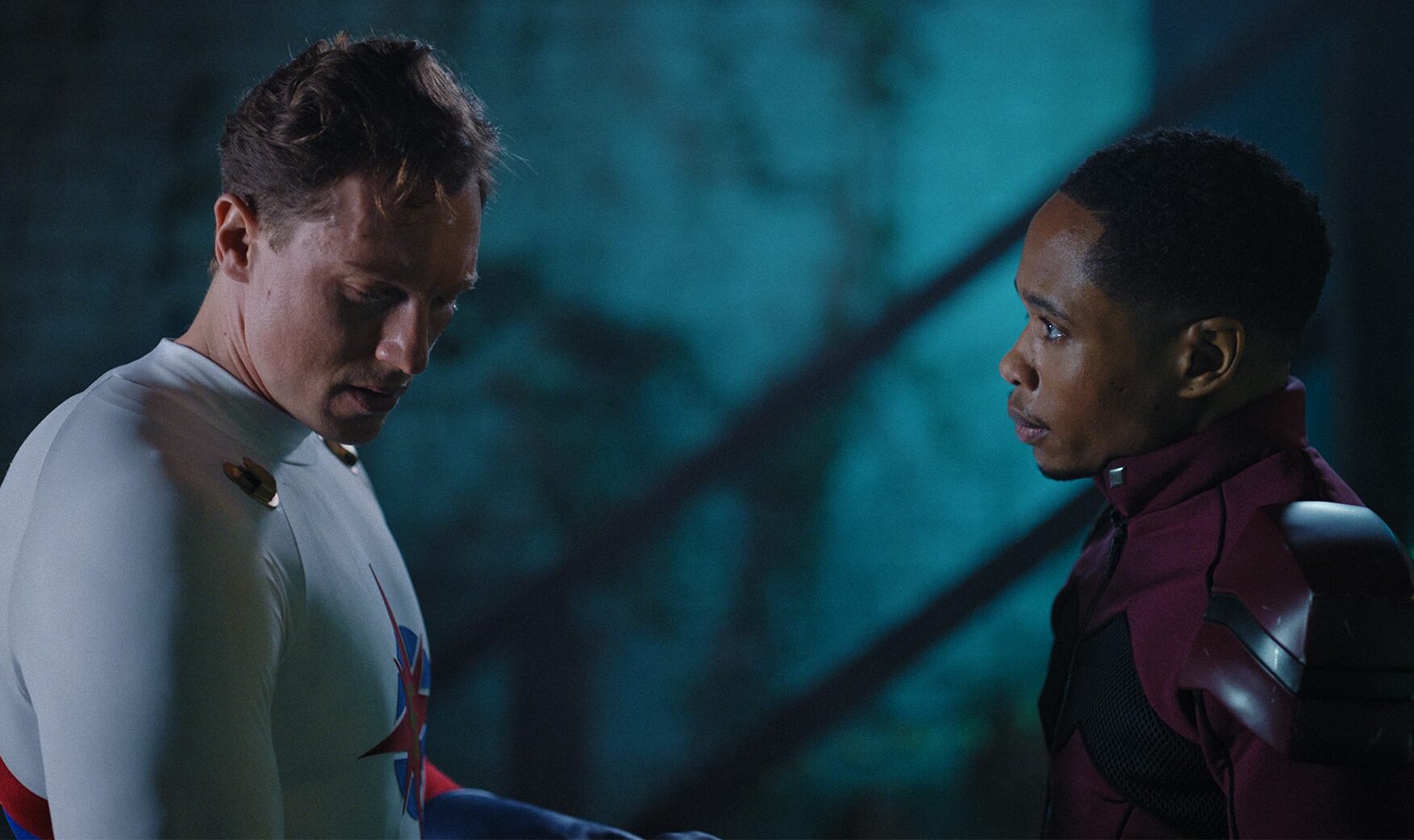WATCH THE TRAILER
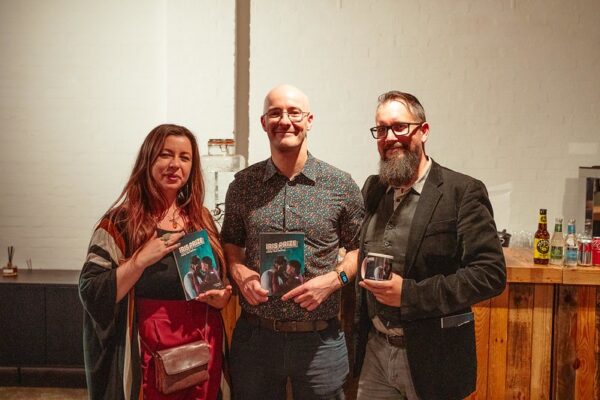
Why do we see so few gay superheroes? What obstacles are preventing greater representation of queer characters in the superhero genre?
The short answer is money, right? I mean like, that’s the really super-duper simplified answer. The longer answer is that superheroes are traditionally role models. They have existed for a long time but in particular, rose to popularity in the wake of the Second World War. We’ve got Captain America, depicted on comic book covers fighting Nazis and taking on Hitler… and so, we get this concept of people fighting for us… having our best interests at heart.
I think ultimately… over the many decades since superheroes kind of rose to popularity in comic books, there's been… an evolution in societal norms. And for a very, very, very long time, which includes the time when our biggest heroes were invented, being gay, being queer, being other was not something that people wanted their role models to encompass.
Would you go as far as to suggest that superheroes are portrayed as glorified soldiers, and that’s why their history doesn’t intersect with queer history?
I know that if I think back to the earliest comic book heroes, Superman, Spider Man, Captain America, Batman, they're all crime fighters, right? They're all vigilante crime fighters. So, I think we definitely associate them with forces like the police, if not the army. It's worth noting that they are still kind of entities unto themselves. [For example] Spider Man has a long history of being suspected as a criminal by the police. But you know they’re still… very simplistic. It's good versus evil.
Even in today's culture where superheroes have evolved into products that can work for all audiences, you still see a spider man cartoon that's geared towards like the 4–5-year-olds. There's the DC young heroes’ cartoon [Teen Titans Go!] that's aimed for like, 8- to 11-year-olds. These can't exist if you're not able to boil down the story into a very sort of simple, good guys versus bad guys narrative.
I’m curious to know if there are any specific instances in existing movies where you feel they missed an opportunity by not including queer representation. Are there any characters that could have easily fit into the storyline, or moments where you thought, "I wish they had committed to incorporating some representation there"?
I don't know. I mean, it's so tricky because there's an archetype of gay characters in movies and that is originally like the sassy gay friends…. That’s kind of evolved into a range of other gay secondary characters. But because they're secondary, queerness is never central to the to the storyline. What I would like to see is more effeminate gay men in leading roles. More gay men in leading roles would be great to see across a variety of genres. You know, I was very keen to make a film that existed within a genre where you don't normally see queer characters, but there are lots of other genres as well.
Even within those, you know… the queer movies and TV shows that we're seeing today, it still seems that there is something implicitly shameful about being an effeminate gay man because there's less visibility there. One of my big inspirations is Buffy the Vampire Slayer, which is partly because I think it's great and partly just because I came to it at the right time as a child. But Buffy was… built on this premise that you have a female character who other people in that universe underestimate… and then the whole concept was that here the woman turns around and actually… she's powerful.
I would like to see that same treatment for gay men. I would like to see an acknowledgement that we can be underestimated or devalued because of being effeminate. And then to see that actually being used… as a power… to subvert expectations and to draw strength from it as well.
Is the concept of gender fluidity more readily depicted in the superhero genre? Do you believe audiences recognize these portrayals as reflections of gender identity and transness?
I don't think your mainstream audience thinks about it like that. Mystique, for example, was in the original X-Men movies, which kind of kicked off this era of superhero movies. She’s presented very much as… woman. There's a lot of opportunity there. I've often thought about how interesting it would be to explore a trans narrative about a shapeshifter. And I'm sure that those narratives are out there. The point here is that queerness and otherness is kind of softly implied in a lot of superhero narratives, but it's not made explicit. In fact, it's almost… never made explicit. You know, there are no superhero movies where the characters talk explicitly about being queer and how that affects their… perception of themselves.
I do think those conversations happen in the comic books. I've seen some of them, but I don't see it happening in movies. I would be surprised if there weren't trans people and gender fluid people who see something of themselves in shape shifters like Mystique and like the other characters from the from the Marvel and the DC universe. But how nice it would be for them if there could be a movie where Mystique talks about how she decided to present as woman… and how being a shapeshifter affects the way that she sees herself, the way that she manages to have some kind of personal identity.
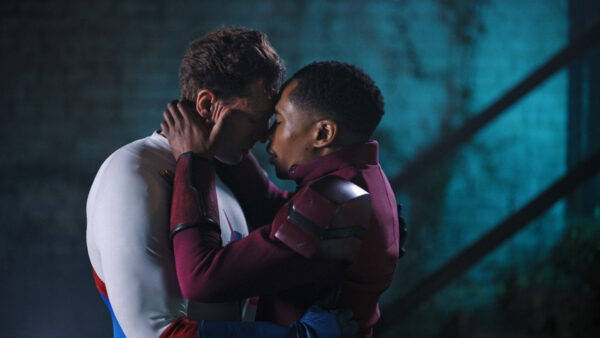 In your film, there's clearly a romance element. Would you say that portraying a gay superhero with a focus on romance would be a top priority for you? Do you think that's one of the most impactful approaches for future representation?
In your film, there's clearly a romance element. Would you say that portraying a gay superhero with a focus on romance would be a top priority for you? Do you think that's one of the most impactful approaches for future representation?
Romance is humanising. … The attachments that we have to other people, our relationship to other people is humanising. When you take that away… it has a dehumanising effect. The Marvel Universe has often been described as being very sexless, which I think is true to an extent. And I think that is, you know, partly in order to have the broadest possible appeal. But it is still ultimately founded on relationships between the characters and quite heavily anchored by a couple of romances. The 1st saga of Marvel, the first era of Marvel, which ended with the Infinity War and with Endgame, is ultimately kind of bookended by this love story between Captain America and his first love interest, Peggy Carter. So, you know, it's an integral part of superhero stories. Like it's an integral part of all stories, really.
These love stories are not necessarily always at the forefront. It's almost better really when the… conflict is between the superhero’s duty and their love, right? You've got Spider Man and Mary Jane. You've got Captain America. The first Captain America movie is about how he sacrifices his opportunity for love by choosing his duty to protect the world. He goes down with a ship and ends up being frozen in ice… which means that he basically loses a huge chunk of time and when he's brought back to the surface and thawed, you know, his opportunity for love is gone. So these relationships are not always at the forefront… but even when they're not, they're integral to help us fall in love with these characters. We can all identify with loving someone, wanting someone, envisioning a life with someone. And these are very important aspects of… all superhero characters. It just so happens that of all the superhero characters that we've met, certainly in recent years, their love interests happen to be… heterosexual.
2024 OPENING NIGHT FILMS
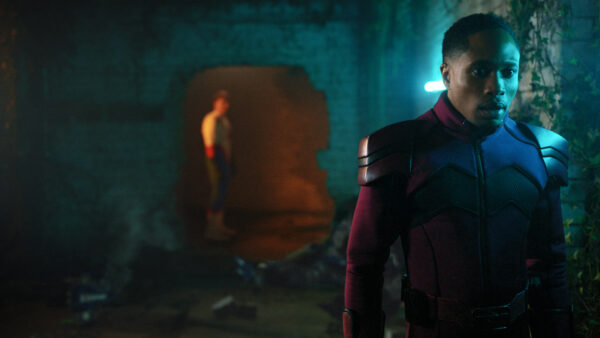 Do you think your film serves as a good introduction, given that it focuses on two men discussing their sexuality? Do you see it as a stepping stone toward a future where a movie could simply portray them as gay without the need for such conversations?
Do you think your film serves as a good introduction, given that it focuses on two men discussing their sexuality? Do you see it as a stepping stone toward a future where a movie could simply portray them as gay without the need for such conversations?
SPOILERS
I don't want it to necessarily be seen as… just a concept for a bigger film or anything like that. [so] the way that it ends kind of mirrors that classic origin story structure for a superhero. Most superheroes origin stories are born out of loss. So, in this case, Sterling, the superhero played by Rory Fleck-Byrne, loses his love Meridian, played by Imran Adams, basically because of his own inability to accept love and his inability to kind of see the world being able to change…He ends up dooming his partner, and so he loses him. So, at the end of the film, I leave it to the audience to decide whether or not Sterling survives. But if he does survive, then I think his story going forward would be influenced by the kind of loss that lots of superheroes experience… like Batman loses his parents, Spider Man loses his uncle… and that would influence his storyline. You know, his queerness is woven into that storyline. It's an integral part of that storyline.
How I imagined it was that these two characters have already been in like a TV show for years and this is the series finale. …The way that we rehearsed it with the actors, that I directed it was that this is the conversation that they haven't been having… and now that the conversation has happened, there's freedom as to what could happen next.
You have extensive experience working with charities and on campaigns. Is filmmaking for you a form of consciousness raising? Do you see it as a medium for change more than entertainment?
Wow. I guess I, I have to say yes, really… because of my career. I mean, OK, well, here's the answer. It has to be both… You can't do anything if you're not entertaining. I've learned from working with charities where the stakes couldn't be higher, that you, you… can't force an audience to watch something, they have to be interested.
And what I've tried to do often in my career is to kind of package difficult subjects and kind of uncomfortable conversations into mainstream genres…. I think you never necessarily want to tell the audience everything about a topic. You want to get them thinking about it. I don't think films should… necessarily tell you what is right and what is wrong. I think they should show people who are struggling, and let the audience decide and … just get them thinking about the subject.
Would you say that your creative direction naturally carries an impactful message?/ Would you say that your creative vision inherently conveys a powerful message?
My whole career is spent thinking about how to communicate messages of inequality and social issues to mass audiences. So that is my, my kind of natural state of thinking. But the truth is that this film really honestly just came from anger and frustration about how the more things change, the more they stay the same. I was particularly… inspired and freed by - I listened to an interview with Emerald Fennel where she talked about creating the film Promising Young Woman. And when she was asked in this interview, you know, what inspired the film, she said, I was just so angry.
And I thought, oh my God, that's so amazing to think that it's OK just to say that and to let that be the basis of a film. So, I suppose my career has been about trying to take issues that ...that might be dismissed out of hand because people aren't interested, or they don't feel connected to it and trying to widen the appeal a little bit of that issue to get more people thinking about it. Society has in some ways moved on so much. And yet still where the money is, where the fame is, where the kind of top of the pyramid is, depending on your outlook on the world, things remain kind of frozen in time. When I was making this film, I had a lot of self-doubt about its relevancy, and I was going: ‘am I just kicking up a big fuss over nothing?’ But it's actually not really about superheroes. It's about like, the top of the food chain and the discomfort with the idea of it being occupied by queer people.
